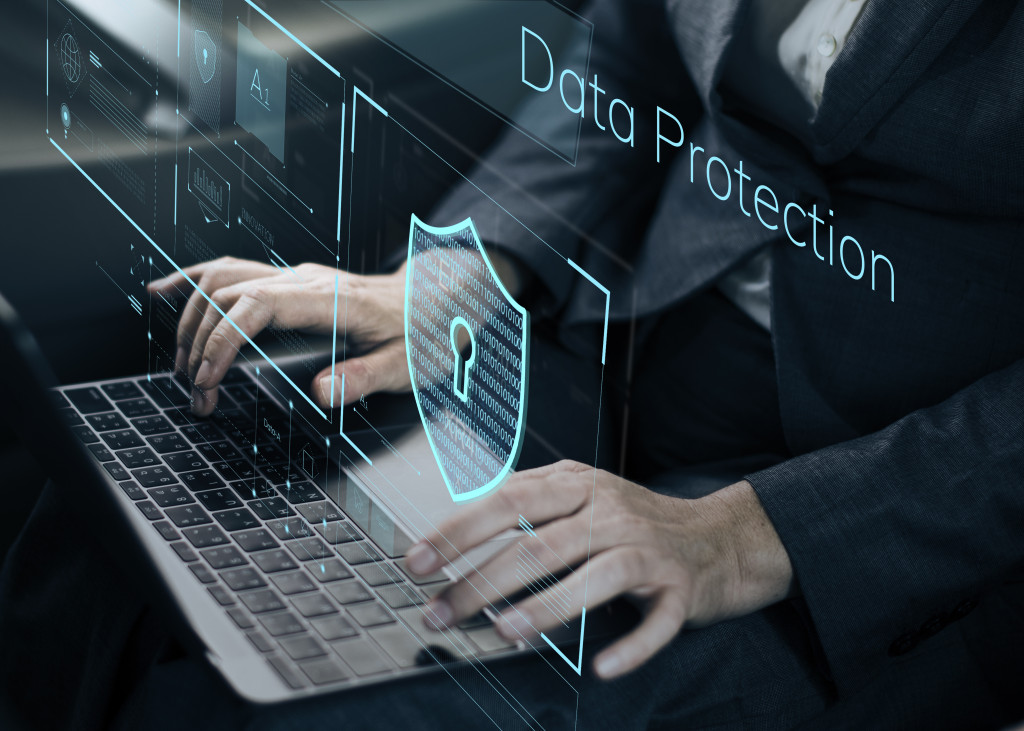Like any business, its corporate security comes in all shapes and sizes. A business owner has to consider several factors to ensure its physical and internal safety. As we consider this, let us explore four different types of safety measures your company can take.
Physical Security and Business Integrity
One of the most important things all businesses should have, especially those in the finance, high-tech, manufacturing, and medical industries, is high-security protocols concerning employee safety, structural enterprise integrity, and the safekeeping of information. After all, if one or all three are compromised, the results could be disastrous, including the loss of sensitive, confidential consumer data and intellectual property.
As such, firms must take the necessary steps to ensure there aren’t any breaches to the organization. One example is the training of relevant staff in self-defense and the use of weapons. For instance, those at the highest levels of risk can run drills in company-owned indoor firing ranges that provide a suitable, safe environment for practice and instruction.
This will guarantee that employees in crucial positions within the organization and the people in charge of safekeeping will be confident and ready if and when something happens.
Data Breaches and Cybersecurity
With the advent of 5G communication systems and the continuous development of information technology, companies are now capable of storing, managing, and transferring incredible amounts of data in all corners of the world. As a result, business expansion is at an all-time high, and the number of transactions conducted daily is virtually immeasurable.
While this has benefitted many organizations in the efficiency and speed with which they run their processes, it has also increased the risk of unscrupulous individuals with extensive computer knowledge. It comes as no surprise then that cyberattacks and other types of data breaches are more prevalent now than ever before.
To counter the negative effects stemming from this, companies should put sound virtual protection systems that guarantee classified information is kept within the organization.

Clear Emergency Protocols
No matter how careful of a driver you are, how much training you have had, or how fast your reflexes might be, sometimes car accidents are unavoidable. The simple reason is that while you can control your actions and behavior on the road, the same cannot be said for those around you. Still, it is much better than not having any training at all.
From a business perspective, it is a similar situation. At one point or another, your firm could be on the receiving end of either a physical or virtual strike. Hence, it is essential to not only do whatever is in your power to avoid this from happening but also have a clear, easily executable plan in case it does.
In all emergencies, the first few minutes straight after are the most important. Whatever you do in these precious moments can be the difference between a small loss and a catastrophic event resulting in your company going under or at the brink of bankruptcy.
It’s All About the People
Machines, software solutions, and safety plans and procedures will only take you so far. At the heart of it are the people you have entrusted your enterprise to. It is in moments of crisis where our true character comes to light, and everything we have trained for and believe in is exposed. Many say this is the moment where leaders rise above the rest and amazing things happen.
Of course, it is impossible to know what people will or won’t do in any specific situation. An honest, moral man going through a personal calamity will, oftentimes, go down the wrong path to save himself and the people he loves. Likewise, a lazy, lackadaisical employee may one day be inspired to take the reins and help others.
But this usually doesn’t happen. Most people are who they are regardless of the surrounding circumstances. Therein lies the importance of having an airtight employee vetting and recruiting system that prevents bad apples from joining your company and causing irreparable damage to the organization later on.
As we have seen, when it comes to business, the word security can mean different things. On the one hand, we have physical security, namely the protection of company premises and staff. On the other, there is virtual security and the prevention of data breaches and cyberattacks.
Security is also about having the right emergency protocols and smart action plans if something bad happens and recruiting morally sound workers keen on corporate growth rather than personal gain.
By understanding these four definitions and putting in place policies to guarantee them, your company will be taking the necessary steps to ensure its safety, proper functioning, and growth.

